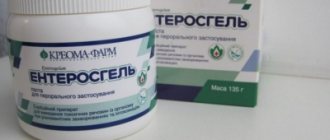Why worm your dog before vaccination? Deworming is an integral preliminary procedure before vaccination.
How and with what to worm a dog before vaccination, why this should be done, and the dangers of administering the serum without antiparasitic treatment to puppies and adult dogs is described in the article.
What to do in such a situation? To get started, we recommend reading this article. This article describes in detail methods of controlling parasites. We also recommend that you consult a specialist. Read the article >>>
Is it necessary to remove worms before vaccination?
Deworming is a set of procedures aimed at preventing infection with worms (helminths, nematodes) or removing them from the body.
An animal can be treated for worms at a veterinary clinic. But usually it is done independently at home.
To understand whether it is necessary to worm a dog, you need to understand the principle of vaccination. Vaccinations protect the body from deadly infectious diseases: rabies, canine distemper, parainfluenza, adenovirus, etc.
The protection mechanism is achieved by developing one’s own immunity. To do this, dead or weakened virus strains are introduced into the body. It is as if the body “gets acquainted” with them and produces antibodies, which, upon re-infection, immediately eliminate the enemy agents.
But while immunity is being developed, the dog’s body weakens. Therefore, before vaccination, she must be completely healthy and treated for parasites.
If you vaccinate a pet infected with helminths, the following consequences are possible.
- Allergic reactions. They are caused by parasites; normally the symptoms are mild, but with the introduction of serum they intensify significantly.
- The immunity will develop weakly or not at all - nematodes disrupt the formation of specific defense mechanisms, so vaccinating dogs affected by worms is useless.
- Infection. Since the animal’s body is already weakened by helminths and the toxins that they secrete during life, the body may not suppress the introduced virus and the opposite situation will arise: the vaccination will not develop immunity, but, on the contrary, will lead to the development of dangerous infectious diseases.
Some owners believe that there is no need to worm their dog - they are sure that their pet is not infected with worms. But this is a disastrous position: nematodes are not always detected even when examining stool; eggs or larvae can easily be missed. And discovering them on your own is completely unrealistic.
Therefore, it is better not to risk it and deworm the animal. After all, how much a couple of deworming tablets will cost cannot be compared with the likely long-term treatment or death of the dog.
Why is anthelmintic treatment necessary before vaccination?
First of all, you need to understand the mechanism that protects your dog from infectious diseases after vaccination.
The vaccine contains biological material that is pre-purified and decontaminated. It contains weakened or killed viruses. When these pathogens enter the dog’s body during injection, they become a target for the immune system, which recognizes them as hostile and “learns” to fight them. Thanks to this, the animal’s immunity gains experience in fighting these pathogens, creates a stable immune memory and retains information. When a real, non-vaccine virus enters the body, the immune system already knows what to do with it. As a rule, such viruses are successfully destroyed.
But the vaccine strain is not a full-fledged “wild” virus and does not provide lifelong immunity. Therefore, vaccinations must be done regularly, usually once a year. In order for the immune response to be as strong as possible, only completely healthy animals should be vaccinated. What do anthelmintic procedures have to do with this? The most direct thing.
Vaccination at its core is an imitation of a disease, which forces the dog’s immune system to learn to develop protection. But this requires significant resources from the immune system: fighting a disease, even an imaginary one, consumes a lot of energy and strength.
Worms are parasitic worms that feed, without exaggeration, on the health of the animal. They simply “eat” their owner, using nutrients and bioactive substances from his food, and often internal fluids. Helminths cause various damage, attach to the intestinal wall with hooks and suction cups, and disrupt the balance of microflora. The larvae of some helminths, such as Toxocara, travel through the circulatory system, which leads to ruptures and blood clots. In addition, parasites secrete toxic metabolic products, causing intoxication. The body tries to fight helminths by releasing specific antibodies. As a rule, this “parasite-host” struggle occurs especially clearly in puppies. And now the vaccine viral strain enters the young body, which is focused on fighting helminthiasis, and also lacks nutrition. The immune system may not have enough resources to fight two pathogens at once, and the immune response to the vaccine will be weak. In this case, upon contact with a full-fledged virus, the dog may become ill. This situation is called “breakthrough of post-vaccination immunity.”
So, the goal of deworming is clear: to eliminate factors that can render the vaccination useless or even harmful and lead to excessive stress on the dog's immune system. But a prerequisite is not only deworming itself, but also compliance with all the rules for its implementation.
Deworming schedule
Dogs are dewormed once 10-14 days before vaccination. If necessary, this period can be reduced to 5 days, since the elimination period of most synthetic drug components is 2-4 days.
If there is a suspicion that the dog is infected with helminths, then he is dewormed twice with a break of 1.5-2 weeks.
To determine how often and how many days before vaccination to worm your pet, we have compiled a schedule. It is approximate and can shift up or down by 1-2 weeks, because... The timing of vaccinations is developed for each dog individually.
Most dogs up to one year old are vaccinated and dewormed according to the following scheme:
- 4 weeks - give the first deworming tablet;
- 6 weeks – the nematode remedy is fed a second time;
- 8 weeks – the first vaccination is carried out;
- 10 weeks – dewormed before the second vaccination;
- 12 weeks – revaccination;
- 5 and a half months – deworming of the junior;
- 6 months – rabies vaccination;
- 11-11.5 months - dewormed again 1 or 2 times with a break of 2 weeks;
- 12 months – scheduled annual vaccination.
Then adult dogs are dewormed every 3 months. The timing of one of the dewormings is adjusted to the annual vaccination schedule: a nematode tablet a couple of weeks before vaccination.
With puppies the situation is more complicated. For the first time, deworming must be carried out twice with a break of 10-14 days.
Double treatment against nematodes is needed to completely protect the baby. The fact is that drugs for worms get rid of adults, and occasionally - from larval individuals. But they do not affect eggs.
After 1-2 weeks, larvae form from the eggs. That’s when they feed the second tablet: the old eggs are no longer there, and the hatched individuals have not yet had time to reproduce.
At what age chicks are treated depends on the timing of vaccination. A minimum of 14 days must pass after birth. Before this period, anthelmintic drugs should not be given. Better yet, wait until the baby is one month old. They purchase special medications marked “for puppies.”
3-4 weeks after the first vaccination, the baby is revaccinated. Owners often doubt whether it is necessary to deworm the kitten again. Rest assured, the procedure is mandatory. Only before the second vaccination can the puppy be dewormed once.
The same scheme is used before rabies vaccination. An already grown puppy is treated for nematodes 10-14 days before vaccination.
How to deworm: some rules and recommendations
To ensure that deworming treatment is successful, adhere to the following recommendations.
- Read the instructions carefully. The drug should be used strictly in the specified dosage by weight: for example, you cannot buy a tablet for 40 kg dogs and divide it into two animals weighing 20 kg.
- A week before deworming, the animal is treated for ectoparasites (fleas, ticks, lice eaters, etc.) - insects carry worm eggs.
- It is better to worm the dog in the morning before eating than after feeding - this way the medicine works more effectively. If you forgot or it was not possible to give the medication on an empty stomach, feed it 2 hours after eating.
- After giving the anthelmintic, do not feed your pet for half an hour.
- The minimum age at which a puppy can be wormed is 2 weeks.
- The wormed animal must have free access to water.
- Defecation should occur a maximum of 6 hours after treatment for helminths - if not, give a mild laxative.
- After treatment with drops on the withers, it is not advisable to bathe the dog for at least 3 days.
It happens that the dog spits out the pill or vomits immediately after giving the medicine. In this case, re-processing is required. But it cannot be done right away: they wait 7 days and then give a second portion of the medication.
Anthelmintics
To carry out a successful procedure, you need to know how to worm your dog before vaccination. Today there is a huge number of a wide variety of means designed to destroy parasitic worms. However, they all fall into three main categories:
- suspensions. Such preparations are suitable for treating the smallest puppies. They can be used at two weeks of age and older. Suspensions are weaker than tablets. But they are quite suitable for preventive use. The most commonly used anti-worm suspensions are Helmintal, Drontal Junior and Dirofen;
- pills. They are suitable for treating adult animals. How many tablets to give your dog can be determined by the instructions. The calculation is based on the pet's weight. To ensure that your pet accurately eats the required dose, the tablets are placed inside the treat. The most popular anti-helminthic tablets are “Kaniquantel Plus”, “Dironet”, “Pirantel” and “Febtal Combo”;
- drops on the withers. This product appeared relatively recently, so it is still considered a novelty. Drops from a good manufacturer have a universal effect. They help get rid of many parasites, including subcutaneous and skin mites, as well as parasitic worms. When applied to the withers, the drug penetrates the bloodstream through the pores and spreads throughout the animal’s body, destroying parasites. The best drops against helminths are “Dana” and “Advocate”.
Each dog breeder decides which product to choose for himself, based on the specifics of using a particular drug. The right type of drug can be selected by the veterinarian who will administer the vaccination. You can also choose an anthelmintic yourself, choosing it based on the pet’s age and ease of use.
General principles of proper deworming
The following recommendations will help you deworm your dog correctly and for the benefit of its health.
Choosing the right anthelmintic.
It is better to entrust the choice of drug to a veterinarian. He will choose a remedy, taking into account the age, health of the dog, its nutritional characteristics, past illnesses and other circumstances. In modern veterinary practice, preference is given to anthelmintics with complex action and a high safety profile. They allow you to rid your dog of all types of intestinal parasites and do not cause harm. Such drugs include “Febtal”, which can be used even in lactating and pregnant animals.
Calculation of the correct dose.
The dosage of the drug is calculated strictly taking into account the weight of the animal. Too much dose can be dangerous, too little can be useless. When choosing an anthelmintic for an old dog with chronic diseases, you should consult a doctor. You should not arbitrarily reduce the dose, give the anthelmintic in small doses, or use medications not intended for dogs.
Time of taking the drug.
Typically, an anthelmintic drug is given to the dog along with the morning food or immediately before feeding (unless otherwise indicated in the instructions for it, or unless the veterinarian has given separate recommendations regarding this item).
Interval between deworming and vaccination.
As a rule, parasites in the intestines die very quickly. It takes much longer for the body’s balance to be restored. Therefore, vaccination is recommended 10–14 days after deworming. But if you urgently need to vaccinate your puppy, you can use Dironet Junior. It contains an immunomodulator, which can reduce the waiting period to 5 days.
Other important nuances.
If a dog, and especially a puppy, is adopted from the street, they may require additional medications due to too many parasites. As a rule, these are laxatives and enveloping drugs that allow you to quickly remove dead worms and prevent them from clogging the intestinal lumen. And don’t forget about water - during this period it should be available to the dog in any quantity, since fluid consumption accelerates the removal of toxins from the body.
A special approach requires the treatment of trematodes caused by flukes. These helminthiases are treated strictly under the supervision of a veterinarian.
In cases where the dog has fleas, it is recommended to carry out external antiparasitic treatment 3-5 days before deworming.
Antihelminthic drugs for dogs (names, active substances, method of administration)
If the vaccination is done in a veterinary clinic, then you can remove worms from your pet at home. When using an anthelmintic, you must strictly follow the manufacturer's recommendations regarding how much medication to use for a particular animal and how to give it. Antihelminthic drugs are available in different forms: for oral, external and injection use.
For oral use (tablets, granules, suspensions, pastes)
Tablets and granules for the destruction of parasites are usually used for deworming adult pets, suspension and paste for puppies. To carry out the procedure correctly, you need to carefully study the instructions for use of the drug. Details of some of the most popular oral anthelmintics are presented in the table:
| Release form of the drug | Name | Active substance | Dosage | Mode of application | Minimum age from which the drug can be used | Contraindications | ||
| Are common | Private | |||||||
| Amount of medicine | Pet weight, kg | |||||||
| Pills | Dironet Spot-On | Praziquantel, ivermectin | 0.5 tablets | 1 |
| 2 months | Individual intolerance to the ingredients of the drug, exhaustion, weakened body, infectious diseases. | Pregnancy, lactation. |
| Milbemax for adult dogs | Milbemycin oxime, praziquantel | 1 tablet | 5–25 | 2 weeks | Severe pathologies of the liver and kidneys. | |||
| 2 tablets | 25–30 | |||||||
| 3 tablets | 50–75 | |||||||
| Milbemax for puppies and small dogs | 0.5 tablets | 0,5–1 | ||||||
| 1 tablet | 1–5 | |||||||
| 2 tablets | 5–10 | |||||||
| Gelmimax-4 | Praziquantel, moxidectin | 0.25 tablets | 0,5–1 | The tablets have no age restrictions | Serious disorders of the liver and kidneys, belonging to the collie, sheltie, bobtail breed. | |||
| 0.5 tablets | 1–2 | |||||||
| 1 tablet | 2–4 | |||||||
| 1.5 tablets | 4–6 | |||||||
| 2 tablets | 6–8 | |||||||
| Gelmimax-10 | 1 tablet | 5–10 | ||||||
| 1.5 tablets | 10–15 | |||||||
| 2 tablets | 15–20 | |||||||
| Gelmimax-20 | 1 tablet | 10–20 | ||||||
| 1.5 tablets | 20–30 | |||||||
| 2 tablets | 30–40 | |||||||
| 2.5 tablets | 40–50 | |||||||
| 3 tablets | 50–60 | |||||||
| 3.5 tablets | 60–70 | |||||||
| 4 tablets | 70–80 | |||||||
| Suspension | Prazicide | Pyrantel pamoate, praziquantel, febantel | 1 ml | 3 – for puppies of medium and large breeds, 1 – for puppies of small breeds | In the morning, mix the suspension with a small amount of wet food or place it on the root of the tongue. | 3 weeks | First half of pregnancy. | |
| Dirofen | Pyrantel pamoate, praziquantel | 1 – for puppies, 3 – for adult pets | ||||||
| Drontal Junior | Pyrantel embonate, febantel | 1 | 2 weeks | Not installed. | ||||
| Paste | Dirofen | Pyrantel pamoate, praziquantel | 1 – for puppies, 3 – for mature dogs | 3 weeks | First half of pregnancy. | |||
For external use (drops on the withers)
Antiparasitic drugs in this form of release are convenient because you don’t need to think about how to feed the medicine to your pet. Drops are applied once to dry, undamaged skin. They should be applied where the animal cannot reach. The area between the shoulder blades is best suited for this. When treating a large dog, it is recommended to apply the solution in several places. You should not use anthelmintics yourself to treat pregnant and lactating bitches. It is up to the veterinarian to decide whether to use drops in this category of animals.
Information about some of the most effective anthelmintics in this form of release:
| Drug name | Active substance | Dosage | Contraindications | Minimum age from which the drug can be used, weeks | |||
| Amount of medicine, drops | Pet weight, kg | Are common | Private | Use with caution under the supervision of a veterinarian | |||
| Advocate | Imidacloprid, moxidentine | 0,4 | Up to 4 | Individual intolerance to the ingredients of the solution, violation of the integrity of the skin at the site of application. | Infectious diseases, rehabilitation period after illnesses and surgery. | Pregnancy, lactation period, weight up to 1 kg. | 7 |
| 1 | 4–10 | ||||||
| 2,5 | 10–25 | ||||||
| 4 | 25–40 | ||||||
| Dana Ultra Neo | Fipronil, thiamethoxam, pyriproxyfen | 0,4 | 5 | Infectious pathologies, the recovery period after illnesses and surgery. | 10 | ||
| 0,8 | 5–10 | ||||||
| 1,6 | 10–20 | ||||||
| 3,2 | 20–40 | ||||||
| 4,8 | Over 40 | ||||||
| Stronghold | Selamectin | 0,25 | Up to 2.5 (purple cap) | Not identified | 6 | ||
| 2.6–5 (purple cap) | |||||||
| 0,5 | 5.1–10 (brown cap) | ||||||
| 1 | 10.1–20 (red cap) | ||||||
| 2 | 20.1–40 (green cap) | ||||||
| Combine pipettes of different packaging | Over 40 | ||||||
| Inspector Total S | Fipronil, moxidentine | 0,4 | 1–4 | Infectious diseases, rehabilitation period after illnesses and surgery. | 7 | ||
| 1 | 4–10 | ||||||
| 2,5 | 10–25 | ||||||
| 4 | 25–40 | ||||||
| Helminthal | Praziquantel, moxidentin | 0,4 | Up to 4 | Severe disorders of the kidneys and liver. | |||
| 1 | 4–10 | ||||||
| 2,5 | 10–25 | ||||||
| 4 | 25–40 | ||||||
For injection
Antiparasitic drugs, which require injection, are used when the pet is heavily infested with helminths. You cannot use such means yourself. Improper use and dosage can lead to serious consequences for the health and even life of the animal.
The decision to use such serious veterinary drugs should be made by a veterinarian, taking into account the clinical picture, age and body condition of the four-legged patient.
Quarantine after rabies vaccination in dogs
The dog should be closely monitored after vaccination. With the help of the administered drug, the dog develops immunity to the disease. The dog owner must take this period of time seriously and monitor the animal.
At that time:
- - you cannot move to another place of residence (even to the country);
- - walks must be carried out strictly on a leash;
- — do not allow your dog to interact with stray dogs;
- - do not wash the dog;
- - avoid serious physical activity;
- — provide balanced, high-quality nutrition;
- - Do not give the dog any new foods.
IMPORTANT! The quarantine period for adult dogs that have previously been vaccinated is 2 weeks. The quarantine period for puppies undergoing this procedure for the first time is 3 weeks.
It is possible to defeat parasites!
Antiparasitic Complex® - Reliable and safe removal of parasites in 21 days!
- The composition includes only natural ingredients;
- Does not cause side effects;
- Absolutely safe;
- Protects the liver, heart, lungs, stomach, skin from parasites;
- Removes waste products of parasites from the body.
- Effectively destroys most types of helminths in 21 days.
There is now a preferential program for free packaging. Read expert opinion.
Interesting to know:
Bibliography
- Centers for Disease Control and Prevention. Brucellosis. Parasites. Link
- Corbel MJ Parasitic diseases // World Health Organization. Link
- Young EJ Best matches for intestinal parasites // Clinical Infectious Diseases. — 1995. Vol. 21. - P. 283-290. Link
- Yushchuk N.D., Vengerov Yu.A. Infectious diseases: textbook. — 2nd edition. - M.: Medicine, 2003. - 544 p.
- Prevalence of parasitic diseases among the population, 2009 / Kokolova L. M., Reshetnikov A. D., Platonov T. A., Verkhovtseva L. A.
- Helminths of domestic carnivores of the Voronezh region, 2011 / Nikulin P. I., Romashov B. V.
An article for patients with a doctor-diagnosed disease. Does not replace a doctor's appointment and cannot be used for self-diagnosis.
The best stories from our readers
Topic: Parasites are to blame for all troubles!
From: Lyudmila S. ()
To: Administration Noparasites.ru
Not long ago my health condition worsened. I began to feel constant fatigue, headaches, laziness and some kind of endless apathy appeared. Problems also appeared with the gastrointestinal tract: bloating, diarrhea, pain and bad breath.
I thought it was because of the hard work and hoped that it would go away on its own. But every day I felt worse. The doctors couldn’t really say anything either. Everything seems to be normal, but I feel like my body is not healthy.
I decided to go to a private clinic. Here I was advised, in addition to general tests, to get tested for parasites. So in one of the tests they found parasites in me. According to doctors, these were worms, which 90% of people have and almost everyone is infected, to a greater or lesser extent.
I was prescribed a course of antiparasitic medications. But it didn’t give me any results. A week later, a friend sent me a link to an article where some parasitologist shared real tips on fighting parasites. This article literally saved my life. I followed all the advice that was there and after a couple of days I felt much better!
Digestion improved, headaches went away and the vital energy that I so lacked appeared. To be sure, I took the tests again and no parasites were found!
Anyone who wants to cleanse their body of parasites, no matter what types of these creatures live in you, read this article, I’m 100% sure it will help you! Go to article>>>
Still have questions? Ask them in our Anonymous group on VK
How to get rid of parasites in a week. The answer is here!
A reliable and effective remedy for combating worms. Removes all parasites in 21 days.
Go to website
Reviews
Read online
Symptoms that 100% indicate parasites! Take the Test.
How to rid your body of life-threatening parasites before it’s too late!
Read more
Website
To get a consultation
The doctor tells how to quickly get rid of parasites for adults and children!
A parasitologist explains what effective methods exist to combat helminths.
More details
Read completely
Comments
Search for cures for parasites
This service is a small help in finding cures for parasites. To start using it, select the type of parasite. If you don’t know what kind of parasite you are infected with, this parasite identification tool will help you by symptoms.
We recommend reading
The importance of parasites in nature: the role of parasitic worms, fungi and bacteria
1 week ago 01/27/202102/02/2021ecoliv94
Will there be worms if you bite your nails? Why you shouldn't bite your nails
2 weeks ago 01/25/202102/3/2021ecoliv94
Where do parasites (worms, fungi, bacteria) live in the human body?
01/08/202112/01/2021ecoliv94
Where does the adult human roundworm live in the body?
01/08/202112/01/2021ecoliv94
Proper worming at home
If a helminthic infestation is detected in an animal, unscheduled deworming is carried out.
This is noticeable by the symptoms:
- worms in feces and in the hair around the anus;
- the animal scratches the anus on objects, rides on the ground;
- poor or insatiable appetite;
- vomiting, alternating constipation and diarrhea;
- bloated belly;
- dulling of fur, appearance of dandruff;
- deterioration of general condition, decreased activity, drowsiness, apathy.
Specific symptoms of helminthiasis, such as worms in the feces and itching, appear only with severe infestation. Other symptoms are also possible in more serious diseases, in which the use of anthelmintics is dangerous.
To avoid consequences, it is better to contact a veterinarian and get tested for worm eggs. Based on the diagnostic results, the doctor will select the most effective drug for the identified type of helminth.
When treating helminthiasis, the drug is given 2-3 times with an interval of 10 days.
A single injection of the drug is not effective.
The active substances of the drugs act only on adult parasites. On average, 10 days after this, the laid eggs of worms mature. To destroy the new generation of helminths, a second dose of anthelmintic is administered.
If signs of infestation are observed even after the second administration of the drug, you need to contact a veterinarian.
A change in medication and additional examinations may be necessary.
Depending on the age of the animal and its size, signs of parasite infection may vary.











